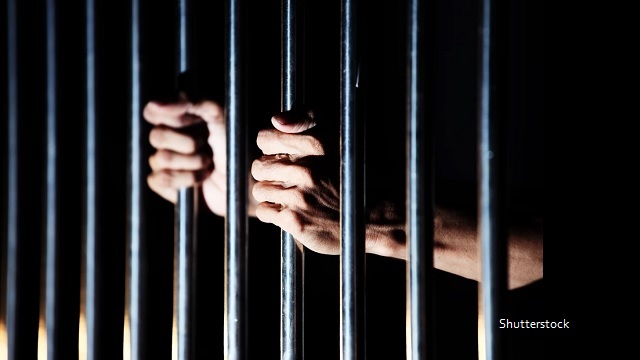Jan. 6 Prisoner Takes His Obstruction Charge to the Supreme Court

A. R. Hoffman in the NY Sun writes, the filing at the Supreme Court of a petition arguing that hundreds of defendants who engaged in violence at the Capitol were mischarged has the potential to upend the largest prosecutorial effort in the Department of Justice’s history.
The justices have been asked to consider whether a federal law, Section 1512 (c)(2) of the United States Code, is a fit for what transpired at the Capitol. The statute assigns 20 years in prison for anyone who “corruptly alters, destroys, mutilates, or conceals a record, document,” or “otherwise obstructs, influences, or impedes any official proceeding, or attempts to do so.” Read more.
Jan. 6 Prisoner Takes His Obstruction Charge to the Supreme Court
‘The federal government has effectively declared a jihad, or a holy war, on everyone within sight of Jan. 6,’ attorney says
By Patricia Tolson, The Epoch Times, July 15, 2023:
In a historic move, a Jan. 6 prisoner has taken his challenge of the infamous obstruction charge, levied against him and hundreds of other Jan. 6 prisoners and defendants, all the way to the Supreme Court.
On July 7, attorneys for Jan. 6 prisoner Edward Jacob (Jake) Lang filed a document with the Supreme Court of the United States (SCOTUS) challenging the government’s obstruction of Congress charge—one of the most common felony charges used against Jan. 6 defendants—which carries a 20-year prison sentence.
“We filed what’s called a writ of certiorari, or a request to the Supreme Court to hear an issue,” Norm Pattis, lead attorney for Mr. Lang, told The Epoch Times. Mr. Pattis explained that the legal team is asking the high court to review the details behind Mr. Lang’s alleged violation of Title 18 U.S. Code Section 1512(c)(2), one of the 11 charges against him, according to court documents (pdf).
According to the writ, obtained exclusively by The Epoch Times (pdf), “Mr. Lang filed a motion to dismiss the Section 1512 count prior to trial. The District Court granted his motion.”
However, “on a consolidated interlocutory appeal to the United States Court of Appeals for the District of Columbia Circuit joined by two similarly situated codefendants, the Court, in a split decision, reversed the District Court. A motion for rehearing was denied.”
The “question presented for review” is “Whether the Court of Appeals erred in concluding that application of 18 U.S.C. Section 1512(c)(2), a statute crafted to prevent tampering with evidence in ‘official proceedings,’ can be used to prosecute acts of violence against police officers in the context of a public demonstration that turned into a riot, resulting in so ‘breathtaking’ an application of the statute as to run afoul of Van Buren v. United States, 141 S. Ct. 1648 (2021).”
The document warns the high court that “dozens of convictions” on this same obstruction charge are “headed to this Court,” all arising from Jan. 6, and “Resolution of the question is imperative to prevent the use of this statute to prosecute folks who protested in a good faith belief that their actions were necessary to prevent an election from being stolen, an event tantamount to an internal coup d’état.”
“Refusal to resolve this question,” the document predicts, “will chill others inclined to petition and assemble for the redress of grievances, for fear that those opposed to their views might prosecute them for possessing a ‘corrupt’ intent.”
‘Really Far Afield’
Obstruction under Section 1512(c) is among the 37 charges for which the federal government indicted the current GOP frontrunner for the 2024 election, Donald Trump (pdf). A favorable ruling by the Supreme Court could have a significant impact on the former president’s legal future as well.
This is not the first time the obstruction charge has been called into question.
Politico reported that, during a two-hour hearing on Nov. 19, 2021, U.S. District Court Judge Dabney Friedrich argued in the case of Jan. 6 prisoner Guy Reffitt—also charged with hindering communications through physical force, civil disorder, and bringing a firearm onto the grounds (pdf)—that the government’s effort to apply the obstruction charge appeared to run “really far afield” from what Congress intended.
Mr. Friedrich ultimately allowed the charge to stand.
AUTHOR
Pamela Geller
EDITORS NOTE: This Geller Report is republished with permission. ©All rights reserved.


Leave a Reply
Want to join the discussion?Feel free to contribute!